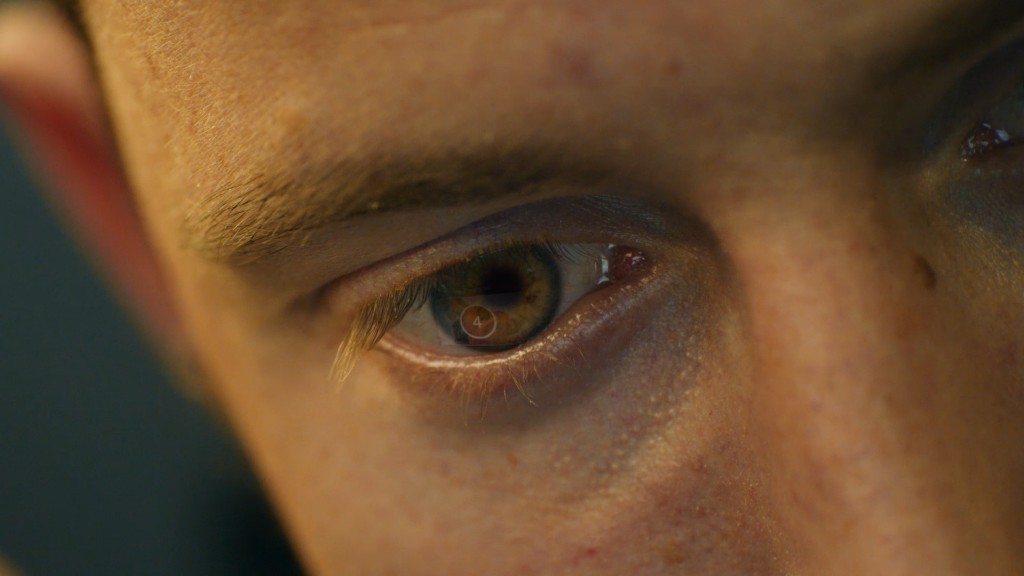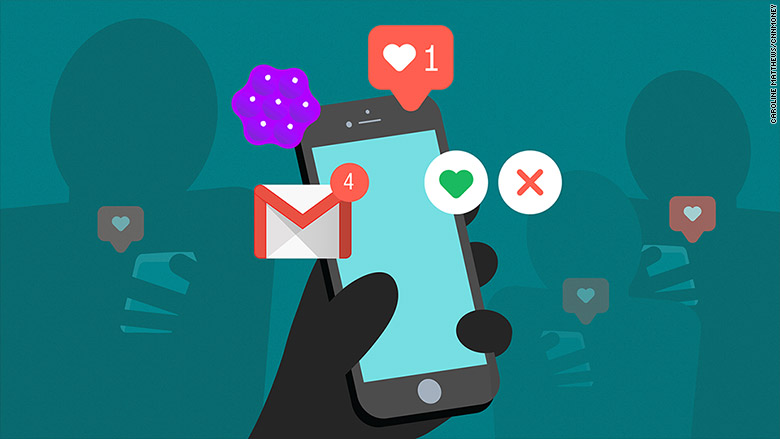
From crushing candies to swiping right, people use their phones to navigate much of their lives.
Facebook calculated that people spend about 50 minutes a day in its suite of apps like Facebook (FB), Instagram and Messenger. That doesn't account for all the other things we do on our phones -- from Snapchatting and tweeting to sending emails and texts.
This social phenomenon is the subject of Max Stossel's latest video, This Panda is Dancing, which launched Monday.
Stossel, 27, isn't your average tech entrepreneur. He writes socially minded poems and turns them into short videos. His mission is to encourage people to reflect on cultural issues and experiences.
Stossel has been commissioned by companies and foundations to write poems that deal with issues like poverty and child sexual abuse.
"Rhyme and rhythm make us listen in ways we wouldn't ordinarily," Stossel told CNNMoney. "Poetry is an incredible tool to help people really listen to something all the way through. I want people to listen."

His first two videos -- Subway Love and Stop Making Murderers Famous -- were internet hits. They received global attention and were shared millions of times -- Stop Making Murderers Famous even led some media outlets to change how they covered mass shooters.
Stossel's latest video challenges people to take a closer look at how smartphones have become a quietly intrusive force in their lives. The video captures Stossel walking the streets of New York, entranced by his phone. He's swiping right "to find a wife," and checking to see how many "likes" his Facebook post received.
In the video, Stossel speaks in verse aimed directly to the "architects of our digital world." He prompts them to consider building tools "so advanced that they can actually enhance the world outside the device in our hand." It concludes with him ordering a single rose on his phone, which is delivered to him on his way to meet a woman -- reinforcing the idea that our phones should be used to improve our interactions -- not replace them.

The video is inspired by a friend of his, Tristan Harris, who was a Google design ethicist until 2016. Now, Harris leads the Time Well Spent movement, where he's been working to rally designers to craft apps and services in ways that enhance humanity.
The group draws a distinction between "time spent," a metric of success used by most digital companies, and "time well spent," a new benchmark that looks at the quality of time.
"Smartphones gave us all these capabilities -- but they're also kind of polluting our inner minds, our inner environment," Harris told CNNMoney. "In the future, I see it being almost a public health concern about how our minds work."
Related: 'We are more than our social media profiles'
Harris wants apps and websites to stop competing for consumers' eyeballs -- and start competing to help people spend time more intentionally.
Stossel said he's been "obsessed" with this for some time. His background is in digital and social media: He's worked with social media guru Gary Vaynerchuck and helped craft social media strategies for companies like Budweiser and Dove.
He also worked on Ocho, a Mark Cuban-backed startup for creating and sharing eight-second videos. Like other social sharing apps, it was designed to keep people in the app as long as possible.
The Time Well Spent movement is based on the belief that apps don't have to be built this way.
"There's a way to design all these things so they're all about serving people first," Harris said. "How do you as a designer think about how you're shaping a billion people's thoughts? You're making choices about how this thing impacts people's minds -- how do you do it ethically?"
Dating app Hinge, for example, recently redesigned its app to better serve users looking for real relationships. It removed its swiping functionality, an addictive feature popularized by Tinder, which keeps people constantly searching for new matches.
Companies can pledge to be a part of the Time Well Spent movement for access to learning materials and design curriculum.
"It's important to realize that there are a thousand PhDs at all times who are trying to hijack our attention," said Stossel. "Our self control is constantly under attack in this new economy."

